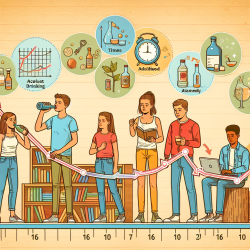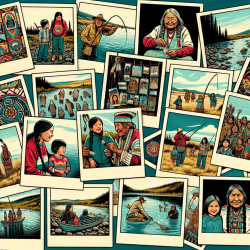The challenges of opioid misuse and suicide attempts among Native American youth are profound and deeply rooted in complex socio-cultural dynamics. Recent research highlights the critical role of social support as a protective factor that can significantly mitigate these issues. This blog explores the findings from the study titled "The mediation and moderation effect of social support on the relationship between opioid misuse and suicide attempts among Native American youth in New Mexico: 2009-2019 Youth Risk Resiliency Survey (NM-YRRS)" and offers actionable insights for practitioners working with this vulnerable population.
The Power of Social Support
The study underscores the importance of social support in reducing the risk of suicide attempts among Native American youth who misuse opioids. High levels of social support were found to be associated with a significant decrease in suicide attempts, particularly among those attending off-reservation schools. This protective effect was more pronounced in males than females, indicating potential gender-specific interventions.
Practitioners can leverage these findings by fostering environments that enhance social connections. Encouraging family involvement, strengthening school-community ties, and promoting cultural engagement are key strategies that can amplify the positive impact of social support.
Practical Strategies for Practitioners
- Enhance Family Engagement: Encourage parents and guardians to participate actively in their children's lives. This includes involvement in academic activities, recreational pursuits, and open communication about challenges faced by the youth.
- Strengthen School-Community Connections: Schools can play a pivotal role by establishing teen health centers with mental health counselors and integrating behavioral health skills into the curriculum.
- Cultural Integration: Collaborate with community elders to incorporate cultural teachings into educational settings. This helps youth connect with their heritage and fosters a sense of belonging.
- Create Supportive Peer Networks: Facilitate peer mentoring programs where older students or community members can guide younger individuals through challenges.
The Role of Research and Further Exploration
The study highlights the need for continued research to explore the nuances of social support as a protective factor. Practitioners are encouraged to engage in further research or collaborate with academic institutions to deepen understanding and refine intervention strategies.
This ongoing exploration is crucial for developing culturally sensitive approaches that resonate with the unique experiences of Native American youth. By contributing to this body of knowledge, practitioners can help shape more effective programs that address both immediate needs and long-term resilience.
Conclusion
The findings from this study offer valuable insights into how social support can be harnessed to combat opioid misuse and prevent suicide attempts among Native American youth. By implementing targeted strategies that enhance familial, school, and community connections, practitioners can make a meaningful difference in the lives of these young individuals.










